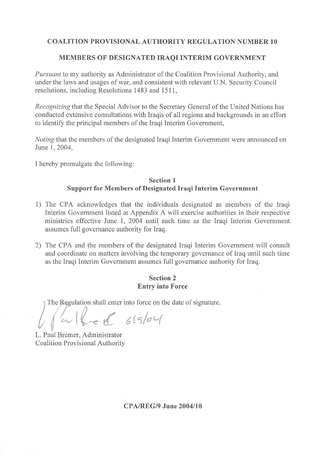
United Nations Security Council resolution 1546, adopted unanimously on 8 June 2004, after reaffirming previous resolutions on Iraq, the Council endorsed the formation of the Iraqi Interim Government, welcomed the end of the occupation and determined the status of the multinational force and its relationship with the Iraqi government.
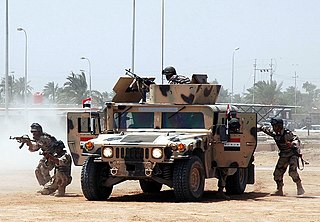
United Nations Security Council Resolution 1723, adopted unanimously on November 28, 2006, after recalling previous resolutions on Iraq, the Council extended the mandate of the multinational force until the end of 2007.

United Nations Security Council Resolution 1637, adopted unanimously on 8 November 2005, after reaffirming previous resolutions on Iraq, the Council extended the mandate of the multinational force until the end of 2006.

United Nations Security Council resolution 1031, adopted unanimously on 15 December 1995, after recalling all previous resolutions on the conflicts in the former Yugoslavia, the council, acting under Chapter VII of the United Nations Charter, discussed the transfer of authority from the United Nations Protection Force (UNPROFOR) to the multinational Implementation Force (IFOR).

United Nations Security Council resolution 1080, adopted unanimously on 15 November 1996, after reaffirming Resolution 1078 (1996) on the situation in the African Great Lakes region, the council, acting under Chapter VII of the United Nations Charter, established a multinational humanitarian force in eastern Zaire.
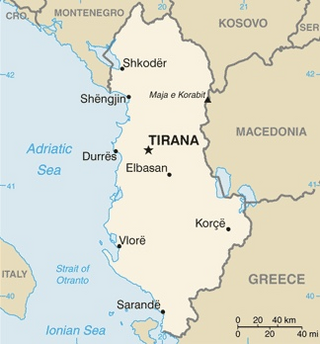
United Nations Security Council resolution 1101, adopted on 28 March 1997, after reiterating its concern over the situation in Albania, the council established a multinational protection force in the country to create conditions to facilitate humanitarian assistance.
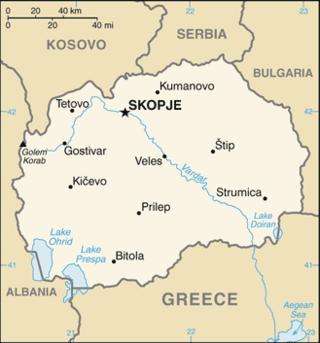
United Nations Security Council resolution 1110, adopted unanimously on 28 May 1997, after recalling resolutions 1082 (1996) and 1105 (1997), the Council renewed the mandate of the United Nations Preventive Deployment Force (UNPREDEP) in Macedonia until 30 November 1997.

United Nations Security Council resolution 1136, adopted unanimously on 6 November 1997, after recalling Resolution 1125 (1997) regarding the situation in the Central African Republic, the Council authorised the continuation of the Inter-African Mission to Monitor the Implementation of the Bangui Agreements (MISAB) mission in the country for a further three months.

United Nations Security Council resolution 1152, adopted unanimously on 5 February 1998, after reaffirming resolutions 1125 (1997) and 1136 (1997) regarding the situation in the Central African Republic, the Council authorised the continuation of the Inter-African Mission to Monitor the Implementation of the Bangui Agreements (MISAB) mission in the country until 16 March 1998.
United Nations Security Council resolution 1159, adopted unanimously on 27 March 1998, after reaffirming resolutions 1125 (1997), 1136 (1997), 1152 (1998) and 1155 (1998), regarding the situation in the Central African Republic, the council established the United Nations Mission in the Central African Republic (MINURCA).

United Nations Security Council resolution 1160, adopted on 31 March 1998, after noting the situation in Kosovo, the council, acting under Chapter VII of the United Nations Charter, imposed an arms embargo and economic sanctions on the Federal Republic of Yugoslavia, hoping to end the use of excessive force by the government.
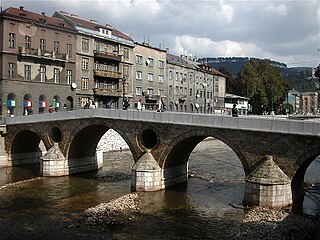
United Nations Security Council resolution 1174, adopted unanimously on 15 June 1998, after recalling resolutions 1031 (1995), 1035 (1995), 1088 (1996), 1103 (1997), 1107 (1997), 1144 (1997) and 1168 (1998), the Council extended the mandate of the United Nations Mission in Bosnia and Herzegovina (UNMIBH) for a period terminating on 21 June 1999 and authorised states participating in the NATO led Stabilisation Force (SFOR) to continue to do so for a further twelve months.

United Nations Security Council resolution 1186, adopted unanimously on 21 July 1998, after recalling resolutions 1105 (1997) and 1110 (1997), the Council extended and strengthened the mandate of the United Nations Preventive Deployment Force (UNPREDEP) in Macedonia until 28 February 1999.
United Nations Security Council resolution 1264, adopted unanimously on 15 September 1999, after recalling previous resolutions on East Timor (Timor-Leste), the Council authorised the establishment of the multinational International Force for East Timor (INTERFET) to restore peace and security in the territory, facilitate humanitarian assistance and protect the United Nations Mission in East Timor (UNAMET).

United Nations Security Council Resolution 1933, adopted unanimously on June 30, 2010, after reaffirming resolutions 1893 (2009), 1911 (2010) and 1924 (2010) on the situation in Côte d'Ivoire and Resolution 1885 (2009) on the situation in Liberia, the Council extended the mandate of the United Nations Operation in Côte d'Ivoire (UNOCI) and supporting French forces until December 31, 2010, and expanded UNOCI's mandate with provisions to strengthen its capacity to consolidate stability in the country.
Operation Alba was a multinational peacekeeping force sent to Albania in 1997. Led by Italy, it was intended to help the Albanian government restore law and order during the Albanian Civil War.

United Nations Security Council resolution 1497, adopted on 1 August 2003, after expressing concern at the situation in Liberia, the Council authorised a multinational force to intervene in the civil war to support the implementation of a ceasefire agreement using "all necessary measures".

United Nations Security Council Resolution 1529, adopted unanimously on 29 February 2004, after expressing concern about the situation in Haiti, the council authorised the deployment of an international force to the country to stabilise the situation following a coup d'état that resulted in the removal of President Jean-Bertrand Aristide from office.

United Nations Security Council Resolution 1707, adopted unanimously on September 12, 2006, after reaffirming all resolutions on the situation in Afghanistan, particularly resolutions 1386 (2001), 1413 (2002), 1444 (2002), 1510 (2003), 1563 (2004), 1623 (2005) and 1659 (2006) and resolutions 1368 (2001) and 1373 (2001) on terrorism, the Council extended the authorisation of the International Security Assistance Force (ISAF) until mid-October 2007.
The People's Socialist Republic of Albania joined the United Nations on 14 December 1955, and has participated in several UN peacekeeping operations. The current Representative of Albania in the UN is Mr. Ferit Hoxha. Albania is a non-permanent member of the 15-country UN Security Council for the two-year term (2022–2023).
















